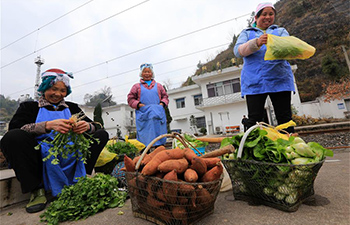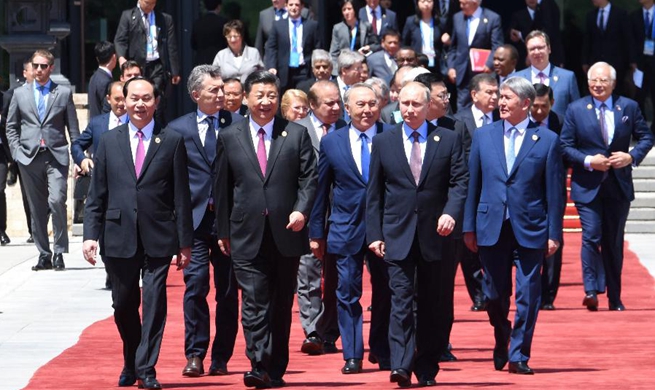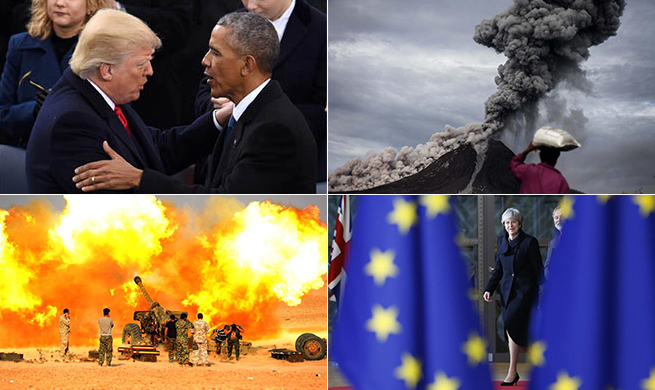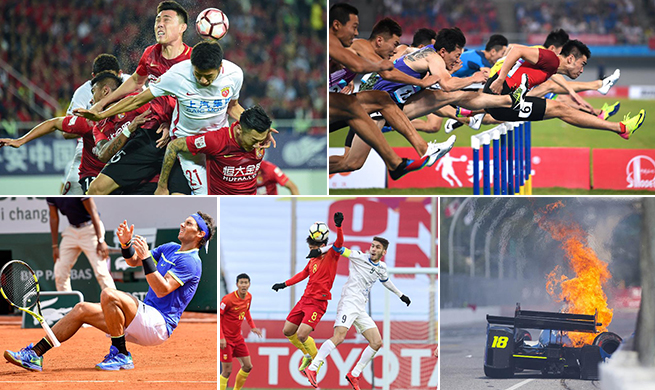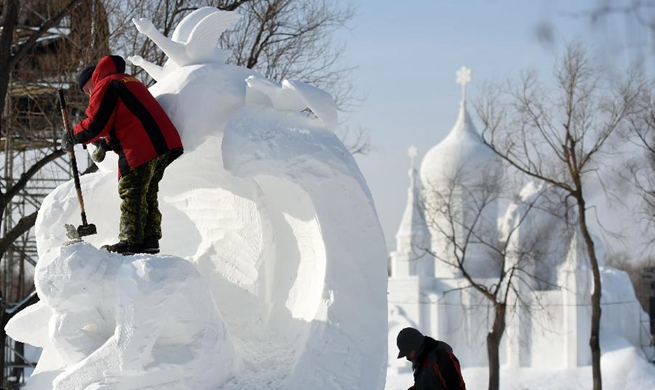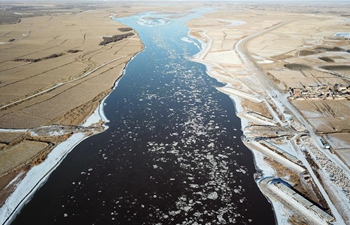JUBA, Jan. 12 (Xinhua) -- A truce signed by South Sudan's warring factions is failing to hold because of weak monitoring mechanisms and lack of political will from the signatories to enforce it, experts have said.
The cease-fire agreement signed between the South Sudanese government and several rebel groups in Addis Ababa, Ethiopia on Dec. 21 last year was brokered by the Intergovernmental Authority on Development (IGAD), an East African regional bloc.
The truce which came into effect on Dec. 24 had asked the warring parties to stop military operations and keep forces in their bases while calling for release of political detainees.
But the pact was immediately broken the same day it began, with the rival groups trading blame games against each other.
Experts have argued that the cease-fire violations occurred due to inadequate monitoring of the several armed actors involved in the agreement.
"The cessation of hostilities agreement has weak mechanism in place to monitor it. Until they put strong mechanism to enforce it, you keep repeating the same thing. So the international community has to change how they monitor the cease- fire," Lual Deng, a policy analyst with Juba-based think tank, Ebony Centre for Strategic Studies told Xinhua in an interview.
Deng said that in order for the current violations to end, IGAD must strengthen the powers of the Ceasefire Transitional Security Arrangement Mechanism (CTSAM) to monitor the truce and violators must be held accountable for their actions instead of blaming both sides.
"You have to single out and also have the courage to say that on such a date, you carried out this act and why? It should be applied to all-whether government or the opposition," Deng said.
Jacob Chol, lecturer of Political Science at the University of Juba, said the cease-fire violations continue unabated because the parties that signed the treaty don't control their armies.
"This cessation of hostilities agreement is not going to work until there is leadership from all parties because the leaders that signed it did not follow up to ensure that their military commanders are basically reigned on so that the guns can be silenced," Chol said.
"What should happen is that CTSAM should be strengthened up and they should be all over the country and even in county levels to monitor what is happening there," he added.
Chol said groups like IGAD, the African Union (AU) and the TROIKA countries (United States, Norway and Britain) must put pressure on the warring factions to adhere to the terms of the agreement instead of just issuing condemnation statements.
"They should not rely on media reports to implement the agreement. The party that violated the cessation of hostilities should be singled out, held responsible, be condemned and also face serious consequences," Chol said.
South Sudan has been embroiled in four years of conflict that has taken a devastating toll on the people, and creating one of the fastest growing refugee crises in the world.
A peace deal signed in August 2015 between the rival leaders under UN pressure led to the establishment of a transitional unity government in April 2016, but was shattered by renewed fighting in July 2016.
The UN estimates that about 4 million people have been displaced internally and externally.
IGAD and the international community are betting on the High-Level Revitalization Forum convened in Addis Ababa late last year as the latest push to end the conflict in the world's youngest nation.
Zacharia Diing Akol, Senior policy analyst with Juba- based think tank, the Sudd Institute, said the cease-fire alone will not end the South Sudan conflict unless regional powers unite and speak in one voice towards peace efforts in the East African country.
"The responsibility to end the conflict in South Sudan is shared by a lot of actors. The parties to the conflict, the other political actors and generally the citizens of South Sudan, have a role in ending the conflict," Diing said.
Diing added that ending the conflict also requires home-grown solutions driven by South Sudanese people and their leaders' willingness to address the current political stalemate.
"In the absence of a political settlement, there would be skirmishes here and there as long as there is no consensus yet. I think it will be a mistake for somebody to think that there is cessation of hostilities agreement signed that will automatically stop the guns from going on. It is going to be a process," he added.





